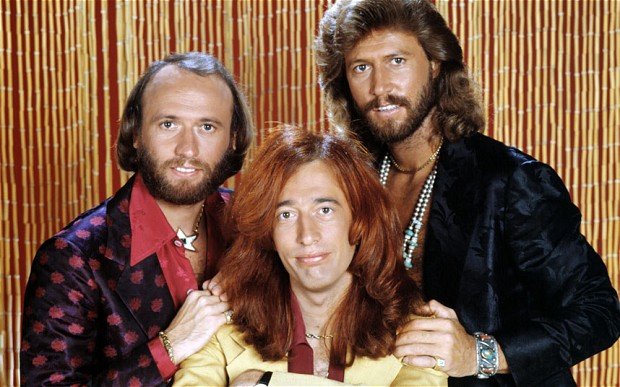Robin Gibb was the gaunt Bee Gee, the one with the tombstone teeth and extraordinary voice, a high, plaintive tenor.
But Robin Gibb’s voice and song-writing abilities, allied with the musical talents of his twin Maurice and older brother Barry, were to sell more than 220 million Bee Gees records in a career that was to last for nearly half a century.
As a song-writing partnership, the Gibb brothers were prolific, second only to John Lennon and Paul McCartney in their success. Not only did they write numerous hits for themselves, they also created hits for many other artists.
Even though after the death of Maurice, Robin Gibb never recorded again as a Bee Gee with Barry, he didn’t stop writing and recording.
A complex, often contradictory character, one of his passions was to highlight Britain’s debt to the country’s troops. Last year, he recorded a charity version of Gotta Get A Message To You with soldiers for the Poppy Appeal. Robin Gibb was also a major supporter and fund-raiser for the Bomber Command Memorial being built in London’s Green Park.
Barry Gibb would always be perceived as the leader, but the strength of the Bee Gees’ partnership lay in their musical equality. The three brothers complemented each other perfectly.

Yet their father, the leader of a small seaside hotel band, didn’t immediately spot the boys’ talents.
Barry Gibb once said: “One day, our parents heard us singing in harmony. They thought the sound must be coming from the radio.”
Robin Gibb explained: “Neither of our parents were aware we could harmonize instinctively. The only thing my brothers and I cared about was composing. We didn’t have any friends or many interests except music.
“In a way we were like the Brontes, complete in ourselves. We didn’t need outsiders. Composing made us happy. We loved it. It was never about money; it was about being recognized and liked.”
Robin and Maurice Gibb were just eight when they made their first public appearance at a children’s competition at the Gaumont Cinema in Manchester in 1957.
They’d planned to mime to an Everly Brothers record, but having dropped and broken it on their way to the cinema, they decided to sing live.
The output of original Gibbs’ songs was prodigious and astonishingly mature. Always highly sensitive, fastidious and reclusive, some of the subjects Robin Gibb chose to write about were very dark for a teenager.
Gotta Get A Message To You was inspired by a news story about a man about to be executed in the U.S. for murdering his wife’s lover.
The Bee Gees’ first British No 1, Massachusetts, was written on their first visit to New York.
“Ninety per cent of it is mental telepathy,” Robin Gibb explained.
“I’d had this line <<The lights all went out in Massachusetts>> in my head all day, and I mentioned it to Barry.
“He said <<I’ve already got the tune for it>> – so we wrote it that night. Maurice did the arrangement.”
The magic really struck in 1977. They were recording in Florida with U.S. producer Arif Mardin and had just come up with Jive Talkin’, an anthem for the disco craze, when their manager Robert Stigwood decided to produce the film Saturday Night Fever.
Within a few weeks, the brothers had recorded five classics – How Deep Is Your Love, Stayin’ Alive, Night Fever, If I Can’t Have You and More Than A Woman. It became one of the most popular movie soundtracks of all time.
The result was the reinvented Bee Gees of legend: the Florida tanned boys with the big hair, dazzling white teeth and suits, and Barry Gibb’s new, breathy falsetto.
In what were jokingly called the “helium years”, their success couldn’t have been greater.
Robin Gibb was an unusual pop star. He was more serious than his brothers and could be withdrawn. But as TV appearances in the last few years showed, he was political (a supporter of the Labour Party), intelligent, articulate and an enthusiastic charity fund-raiser.
Always his own man, the many songs he and his brothers created will outlive him by generations.
[youtube 4XWYefe9EzI]
